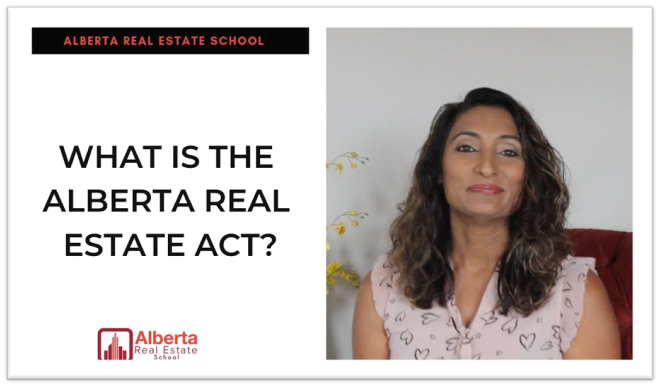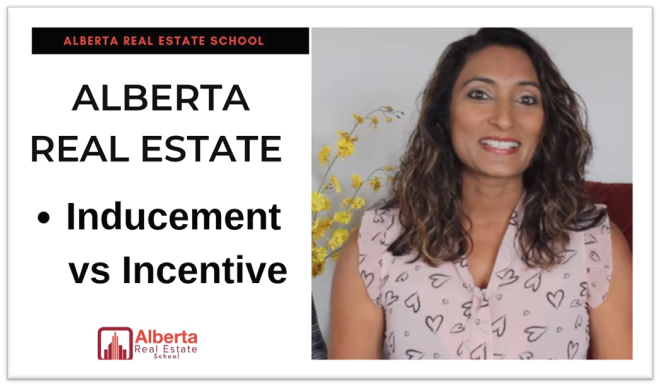The Real Estate Act of Alberta is the legislation governing residential real estate, commercial real estate, property management, condominium management, and mortgage brokerage licensees in Alberta. RECA administers the Act on behalf of the provincial government. It establishes the framework for regulating 3 different professions: Real Estate, Mortgage Brokerage and Real Estate Appraisers.
The key points to remember about The Real Estate Act are:
- It is a statute enacted by the provincial legislature.
- It is the law, and it is the responsibility of the Minister of Service Alberta, and it can only be edited by the legislative process, so any changes or amendments that need to be made to The Real Estate Act must go through the legislative process.
The Real Estate Act consists of 4 different components – The Act, The Rules, The Bylaws and The Regulations.
The Act
The Act is divided into 6 different parts and each part focuses on a specific aspect of the legislation. The different parts are RECA which establishes RECA, the Real Estate Council of Alberta and defines its purpose and powers. Each body governs its own category and lays down guidelines for its specific legislation within its power. Some of them are as follows:
- The Regulation of Business of an Industry Member deals with the authorizations to trade in real estate, conduct proceedings, which deals with investigations, hearings and appeals regarding the conduct of industry members.
- The Real Estate Assurance Fund is designed to protect the public from fraud or breach of trust by real estate or mortgage brokerage industry members.
- The Alberta Real Estate Foundation which is established to promote the education of real estate and mortgage brokerage professionals.
- General Guidelines provide generic laws and regulate guidelines for all categories.
The Rules
Rules are standards of practice for industry professionals. These deal with things like authorizations, licenses and registrations, standards of conduct and practices of the members, accounting, book-keeping and reporting requirements, errors and omissions insurance which is done through RECA and the fees schedules for various things like licenses, registration and so forth. Since the rules are administrative in nature, these can be amended by the Council.
The Bylaws
Bylaws are a set of administrative guidelines that are adopted by the Council. These specify how RECA conducts and operates its business. These relate to Council members, Council proceedings, and Council administration. They deal with administrative penalties, hearings and appeal panels, and also the Real Estate Assurance Fund. Since the Bylaws are administrative in nature, they can be amended by the Council.
Now, who can make changes or amendments? So, the first one is, to Real Estate Act or The Regulations. Both must deal with the law. Therefore, only the Legislature can make changes to these and not RECA. Whereas the Rules and Bylaws are administrative in nature, therefore these can be amended by RECA.
The Regulations
The Regulations are amendments or interpretations to sections of the Act. There are 2 different types of regulations, ministerial regulations, and exemption regulations.
Ministerial Regulations set the policy for organization and administration of Alberta Real Estate Foundation and Real Estate Assurance Fund, whereas Exemption Regulations deal with granting exemptions to certain people from the Act or certain bodies from the Act, for example, banks, lawyers, et cetera.
The regulations are part of the law, so they are made by Minister responsible for the Act or the Lieutenant Governor in Council.
QUESTION SAMPLES
So, let us move on to some sample questions now, and take a look at what type of questions can we expect on the exam related to this topic.
Example 1:
Which of the following has the authority to create Bylaws governing the Council?
A. The Council
B. Government of Alberta
C. Alberta Real Estate Association
D. All the above
The answer is A, only the Council has the authority to create Bylaws governing the Council.
Example 2:
The Regulations as established by the Cabinet and Lieutenant Governor in Council cover:
A. The administration of the Alberta Real Estate Association and the Real Estate Assurance Fund
B. The administration of the Alberta Real Estate Foundation and the Real Estate Assurance Fund
C. The administration of the Alberta Real Estate Foundation and the Alberta Real Estate Association
D. None of the above
The correct answer is B. The Regulations cover the administration of the Alberta Real Estate Foundation and Real Estate Assurance Fund.
Example 3:
Which of the following may RECA amend?
A. The Rules
B. The Regulations
C. The Act
D. All of the above
The correct answer is A. RECA can only amend the Rules. The Regulations and The Act, they are part of the law, so RECA cannot make any changes to the Real Estate Act or the Regulations.
These are the basics that are required to know about the Alberta Real Estate Act when you are starting up with Real Estate studies.

Wondering about other Real Estate Topics? Let’s see if you know about the Different Types of Classes for Real Estate Licensing in Alberta.
Learn with Alberta Real Estate School and pass your Alberta Real Estate Exam in the First Attempt!
You can opt to listen to this blog on our podcast below. For educational support and advice on other real estate topics, call us directly on 587.936.7779.







